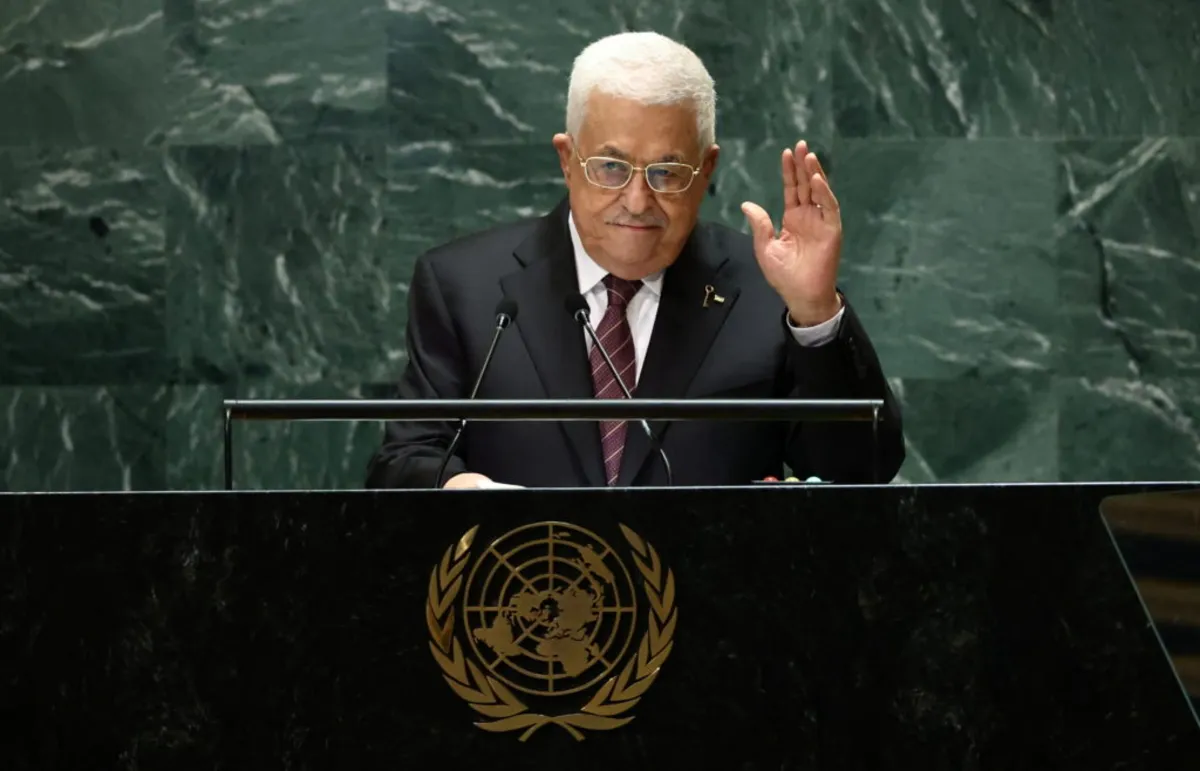
In a significant diplomatic move, Secretary of State Marco Rubio has revoked the visas of Palestinian President Mahmoud Abbas along with 80 other officials, just ahead of the upcoming annual high-level meeting of the U.N. General Assembly. This decision has drawn condemnation from the Palestinian Authority, which argues that it contravenes international law.
A State Department official, speaking on the condition of anonymity due to the sensitive nature of visa issues, confirmed on Friday that Abbas and other officials from the Palestinian Authority were affected by these new visa restrictions. Interestingly, representatives assigned to the Palestinian mission at the U.N. were granted exemptions from this measure.
This latest action is part of a broader strategy by the Trump administration to impose visa limitations on Palestinian officials. The announcement coincided with the Israeli military designating Gaza's largest city as a combat zone, further complicating an already tense situation.
In addition to the visa revocations, the State Department has also suspended a program that previously allowed injured Palestinian children from Gaza to receive medical treatment in the United States. This decision followed a backlash on social media from some conservative factions.
The State Department indicated that Rubio’s directives included the denial of new visa applications from Palestinian officials, particularly those linked to the Palestine Liberation Organization (PLO). A statement from the Department emphasized that it is essential for the PLO and Palestinian Authority to be held accountable for failing to adhere to their commitments, which undermine the prospects for peace. The statement further asserted that to be considered partners in peace, these groups must repudiate terrorism and cease incitement to violence in their educational systems, as mandated by U.S. law and previously promised by the PLO.
The Palestinian Authority has strongly criticized the revocation of visas, labeling it a breach of U.S. obligations as the host country of the U.N. In a formal statement, the Palestinian presidency expressed “deep regret and astonishment” at the decision, asserting that it violates international law and the Headquarters Agreement, especially given that the State of Palestine is an observer member of the United Nations.
U.N. spokesman Stephane Dujarric stated that the organization is seeking clarification from the State Department regarding this issue. He expressed hope that the situation would be resolved, emphasizing the importance of representation for all member states and permanent observers.
The State Department has assured that representatives from the Palestinian Authority mission at the U.N. will receive waivers under the U.S. host country agreement, allowing them to continue their operations in New York.
The Trump administration's recent actions reflect a broader trend of tightening restrictions on individuals previously granted legal permission to enter the U.S. The standards for disclosing information about canceled visas have also seemingly been relaxed to emphasize certain political points. For example, the State Department's No. 2 diplomat publicly announced the revocation of visas for the British punk-rap duo Bob Vylan after they led protests against the Israeli military.
Palestinian Ambassador to the U.N., Riyad Mansour, noted that President Abbas had intended to lead the delegation to the U.N. meetings and address the General Assembly, a role he has fulfilled for many years. Abbas was also expected to participate in a high-level meeting co-chaired by France and Saudi Arabia on September 22, focusing on a two-state solution that envisions Israel living peacefully alongside an independent Palestine.
This unfolding diplomatic scenario highlights the complexities surrounding U.S.-Palestinian relations and the ongoing challenges in the quest for peace in the region.